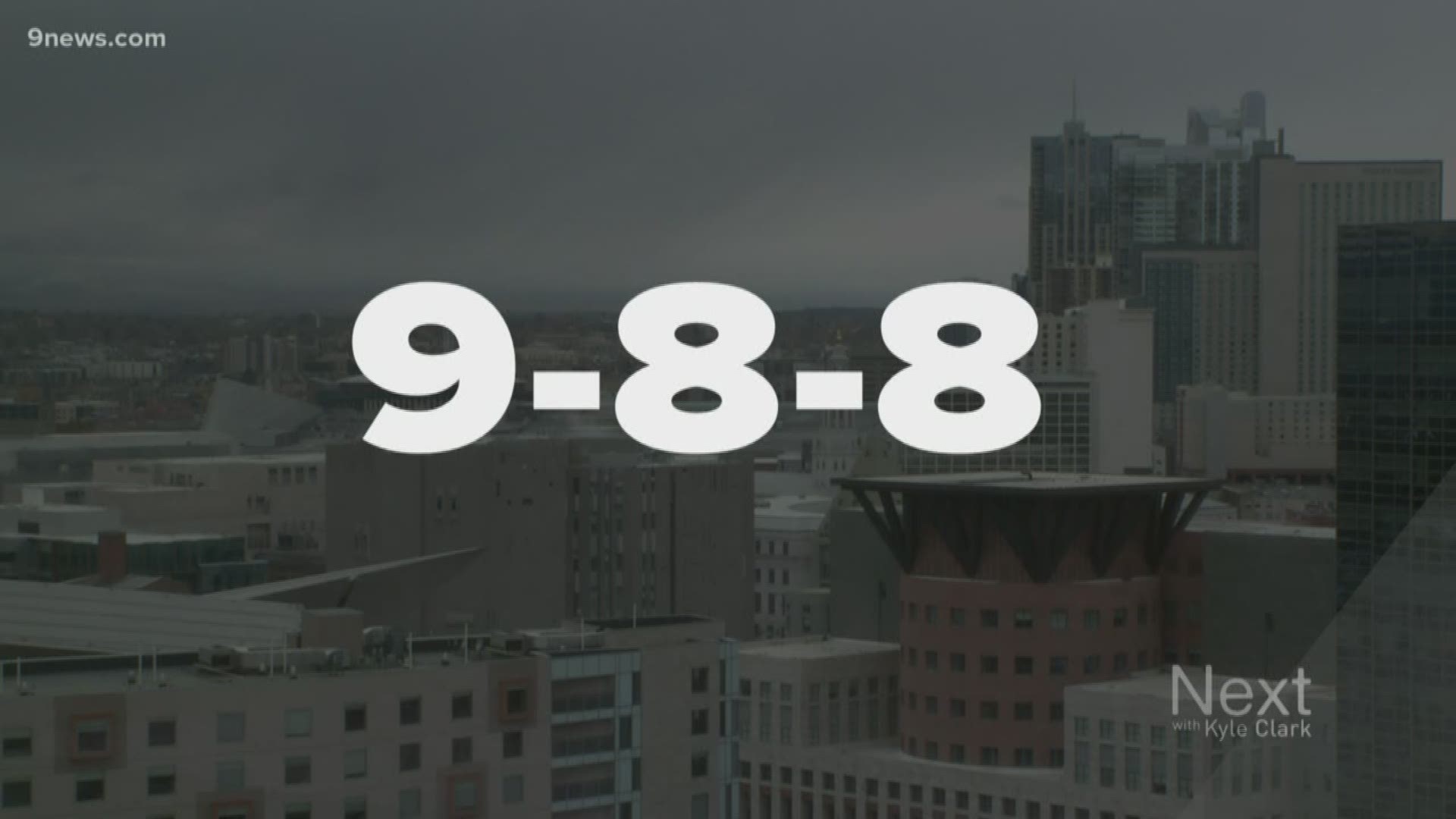DENVER — Legislation would make mental health crises and suicide prevention help easier for people to reach by designating 988 as a hotline, similar to the way 911 is used in cases of emergency.
"We must do more to destigmatize access to mental health resources and prevent suicides in our country," said Colorado Republican Senator Cory Gardner, who co-sponsored the bi-partisan legislation.
"This legislation is more than smart policy that will help save lives, it's a statement that our government recognizes the crisis and is working across party lines to address it," Gardner added.
The bill was first introduced on Oct. 22. It's been referred to the Commerce, Science and Transportation Committee. Gardner is a member of that committee.
Vincent Atchity, executive director for Mental Health Colorado, said launching a new three-digit emergency line could help remove an obstacle to get help because it would be easier to remember and connect someone to a person specifically trained in providing mental health support.
Atchity also said if law enforcement is needed in a situation, they would be called in.
Atchity said although 988 would be a national number, it would route people to local services.
"So here in Colorado, a call to 988 might direct you to the Colorado Crisis Services," he said.
"I think it would help tremendously," he added," It's a number a child could learn; we could learn 988 the way we've learned 911."
The FCC has a system called N11. There are eight three-digit codes set aside for public services, like 911, 811...all the way down to 211.
The FCC said a "988" system would take a long time to launch.
Whitney Nichols is a spokeswoman with Colorado 811, the non-profit that helps run the program in Colorado. She said it took five years to set up, including passing legislation, getting 811-designated for the public service and working with service providers to make sure calls are forwarded to the right people.
Nichols said educating people about it is an on-going process, but that once people started utilizing 811, it's been very helpful.
"It's easy to remember," she said. "It's easy for us to promote as a public awareness message."
The FCC estimated that it could cost $570 million to launch for the first year, to roll out the new number and for education, as well as funding for a crisis services center to potentially expand to accommodate a higher call volume.
The FCC also estimated the cost would go down to $175 million the second year.
SUGGESTED VIDEOS | Full Episodes of Next with Kyle Clark

